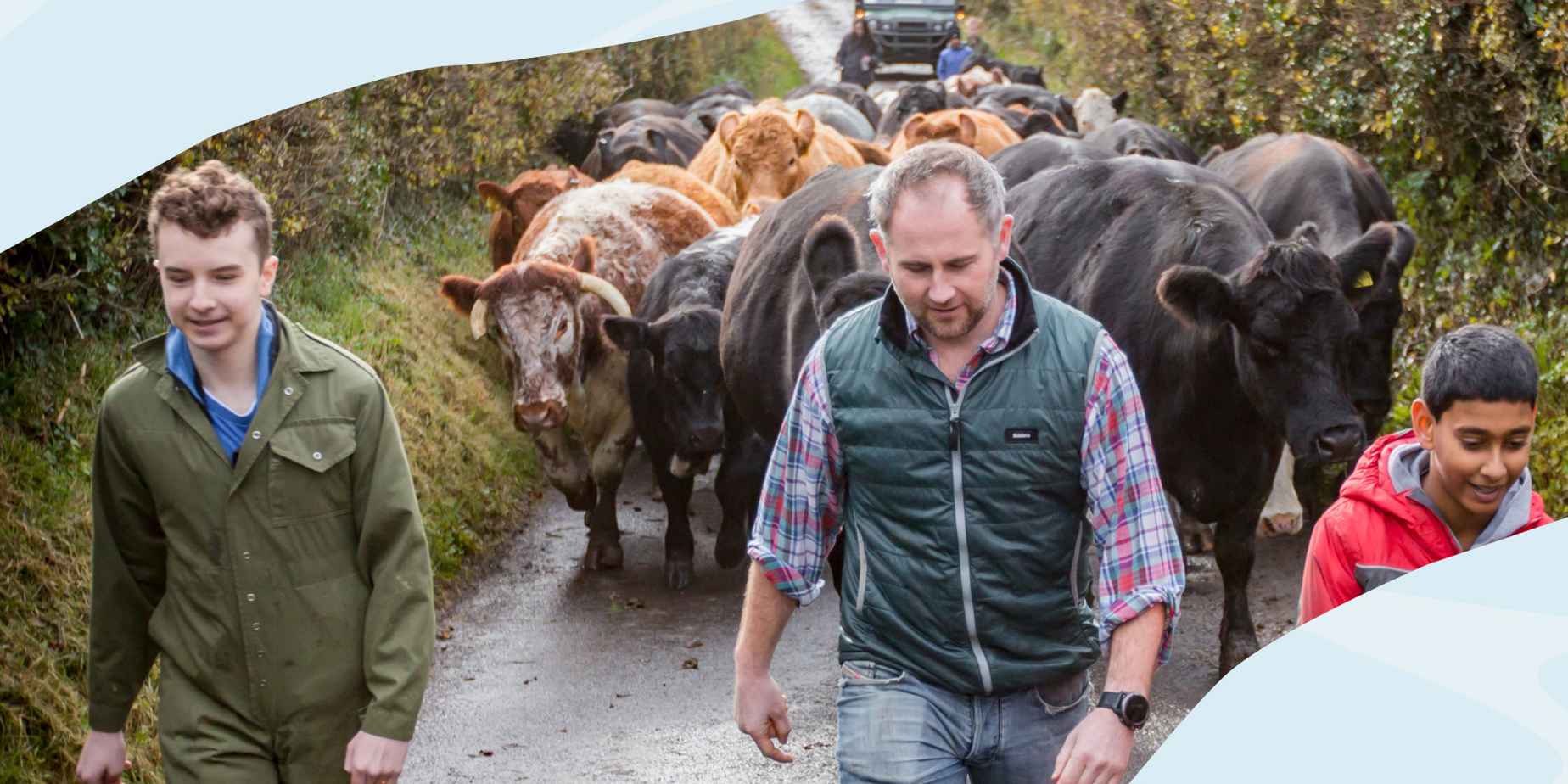Against this economic backdrop, teacher Jamie Feilden was establishing a much-needed five-day farm residential programme near Bath for secondary school children.
16,000 young people have visited a Jamie’s Farm since 2009, now with sites near Bath, Monmouth, Hereford, Lewes, Skipton and London, on a programme designed to improve behaviour, boost engagement and develop essential life skills.
The first Jamie’s Farm was supported by a loan from Triodos Bank.
“Although the ‘Care Farm’ idea was new in the UK, in Triodos’ original home in the Netherlands there were around a thousand, so they understood our aspirations and our unique strengths – my background in farming and my mother Tish’s experience as a psychotherapist. She calls our approach ‘therapy on the hoof’, achieving profound long term educational and emotional outcomes through our combination of Farming, Family, Therapy and Legacy," says Jamie.
Triodos Bank UK CEO Bevis Watts remembers: “I recall advocating strongly for Jamie’s Farm at Investment Committee back in 2009, because our support would be helping to change not one system but two – Jamie's Farm would transform the lives of young people through their unique residential programme and also be a pioneer of care farming in the UK – showing new business models could emerge. It was challenging because it was outside of our organic farming criteria at the time, but we felt strongly that Jamie was committed to learning and understanding how his farm could also have positive environmental impacts”.
The programme
In a typical residential week, young people – having handed in their mobile phones when they arrive – will experience farming, working with livestock (cattle, sheep, horses, pigs and chickens), growing fruit and vegetables, and preparing, cooking and eating meals, often in the outdoor kitchen. The family context of the week encourages children to cooperate by living, cooking, and walking together, while therapy is integrated through group work, one-on-one meetings, and activities with horses, which are often the highlight of the week. The experience doesn’t end once pupils return to school – for six weeks and beyond a carefully crafted legacy programme keeps the benefits of the visit alive, with opportunities to become Youth Champions for the farm.
Like many Triodos-supported programmes, Jamie’s Farm also aims to influence the wider system. Both Jamie Feilden and co-CEO Jake Curtis went through the Teach First programme, and they credit the organisation both for supporting the idea and for providing the network of teachers and schools who would be the first users of the programme. Jake is also working with another charity extending a similar approach into children's homes:
“Lighthouse Children’s Homes , where I am chair, are echoing our principles and bringing a real impact to the children in their care, who may have been through seven or eight foster placements. It’s all about changing the wider universe of care for young people.”
Transformative impacts on people and planet
Does Jamie’s Farm work? As Bevis Watts noted, the approach changes multiple systems.
In education, persistent issues such as risk of exclusion and attendance are transformed after a Jamie’s Farm visit:
- 47% of those at risk of exclusion were no longer at risk six months later
- 52% of those with attendance concerns were clear
- After six months, behaviour skills had improved for 61% of visitors
- Relationship skills improved for 65%
- Wellbeing improved for 64% (important when the OECD says the UK is 71st out of 74 countries for teenage wellbeing)
The results are equally impressive in farming, where a regenerative approach is paying off. Planting 250 acres of herbal leys and 10,000 metres of hedgerow in 2023/24, supported by rotational grazing to enhance soil health and biodiversity, helps achieve a farming business that is better than net zero carbon – a carbon metric audit found an excess sequestration of 125 tonnes of carbon. An agroecology specialist has been appointed to improve these figures even further.
Growing support
The multiple system benefits of Jamie’s Farm underpin Triodos’ funding philosophy for the latest farm – the seventh – which has an innovative mortgage.
Triodos senior relationship manager John Sharpe explains: “When we considered the proposed loan for Lower Shockerwick Farm, we already knew the structure of the charity’s business and the impact it achieved. Expansion to serve more young people was clearly needed, but we could also see that the farm had great potential for more regenerative farming techniques, a journey which they have made significant progress with since 2021 in particular. So, we included a factor for carbon sequestration in our interest rate calculations, and progress will be measured as further transformation continues in future years.”
Supporting future generations
Jamie Feilden and Jake Curtis look forward to more impact in education and farming, and in wider system change, in the future.
“Our turnover exceeded £5 million for the first time this year,” says Jake. “The mental health crisis amongst young people increases demand for our service, and we were fully booked with residential courses on our sites this year.”
“If I could talk to Defra,” comments Jamie, “I would tell them that we can genuinely transform our landscape, the biodiversity, the habitats, carbon sequestration, dealing with flooding, with the right subsidy regime. In the Department for Education, I would ask them to nurture children and teachers more, make them feel more supported, recognised, loved in fact. And I think through that we can have healthier institutions”
The last word must go to Adele. She first came to Jamie’s Farm aged 14 and as a 24-year-old Youth Champion spoke at the 2024 Open Day. Demonstrating the confidence she built in her time at the farm, she summed up her experience in one phrase: “I wouldn’t be the person I am today without Jamie’s Farm.”







Thanks for joining the conversation.
We've sent you an email - click on the link to publish your post.